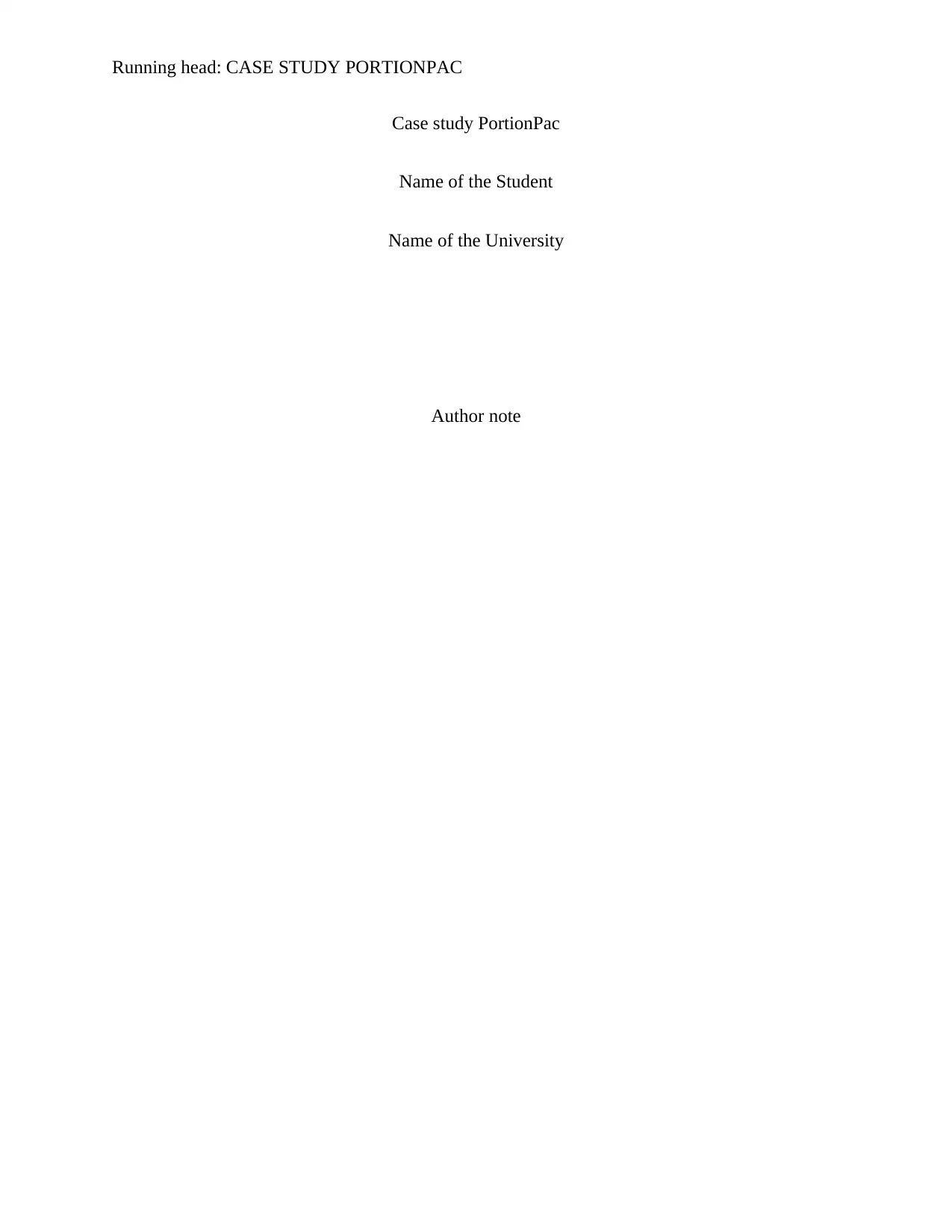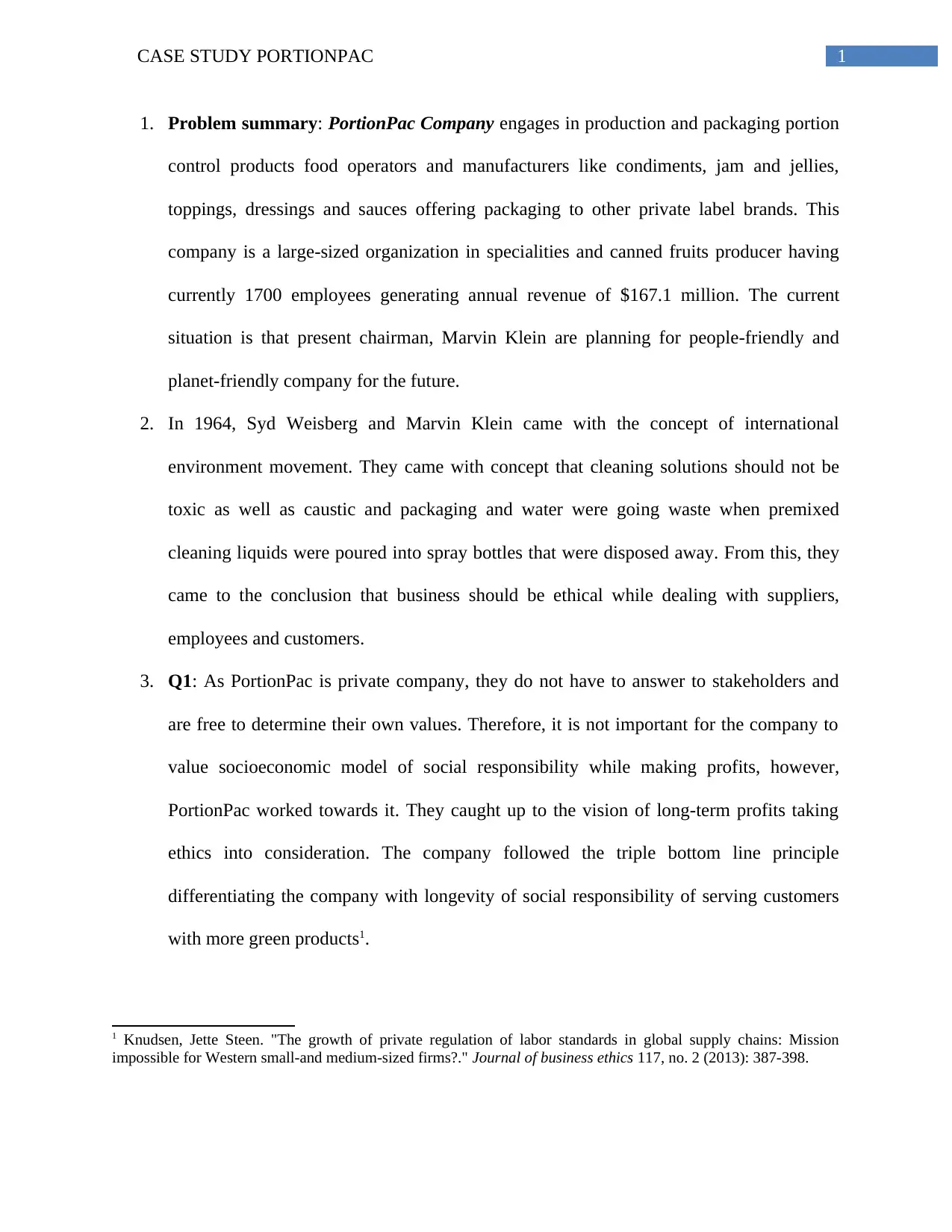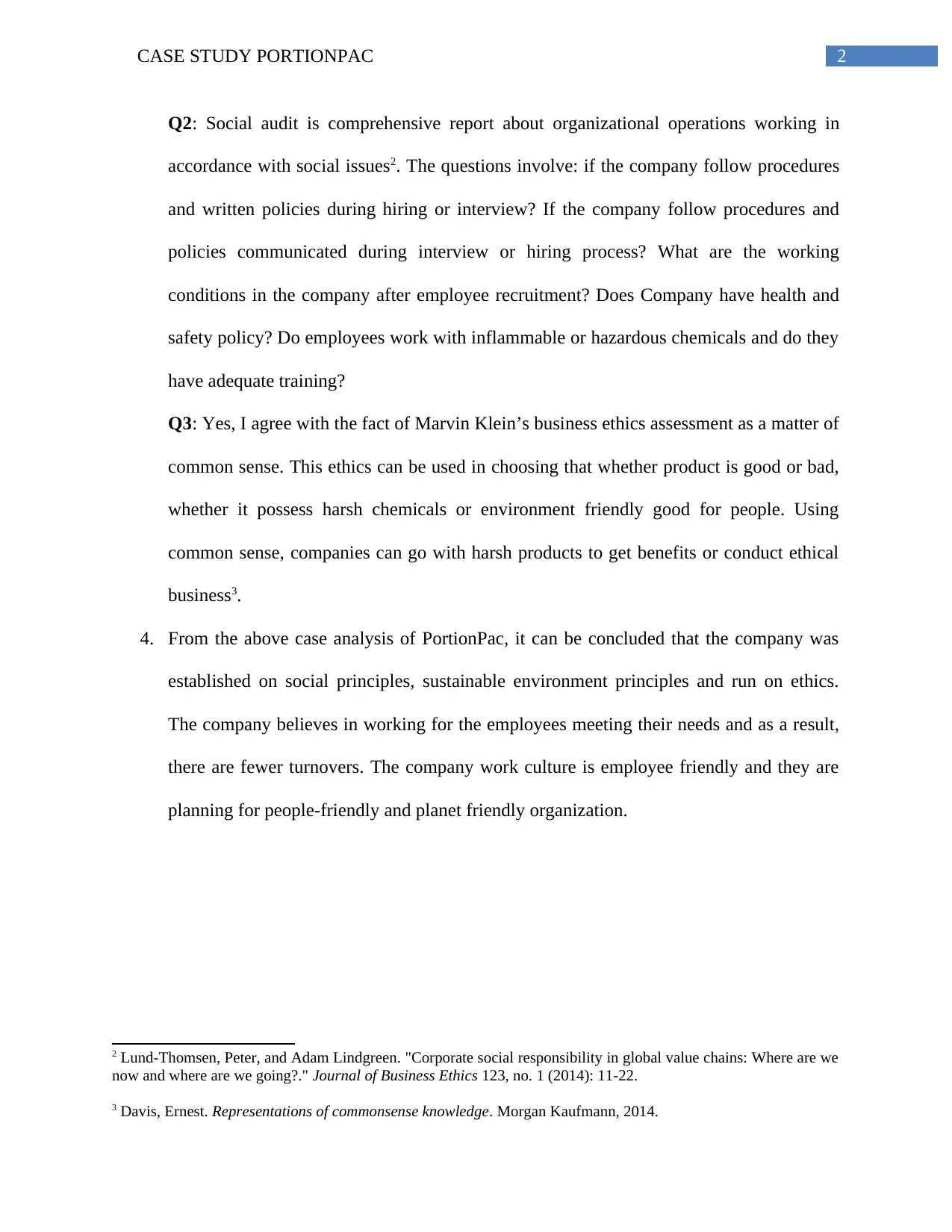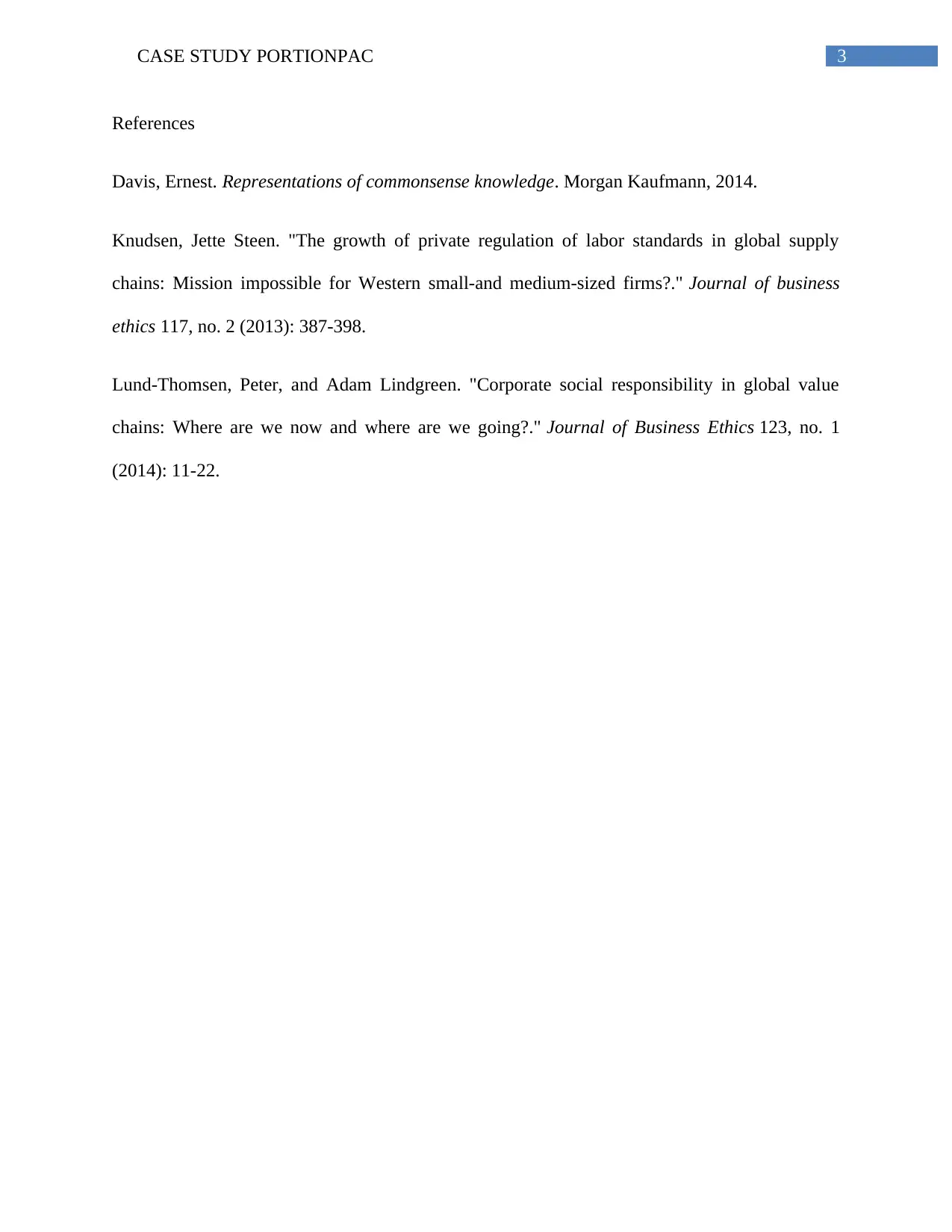Business Ethics and Social Responsibility: PortionPac Case Study
VerifiedAdded on 2020/05/28
|4
|593
|275
Case Study
AI Summary
This case study examines PortionPac, a company focused on portion control products, and its approach to business ethics and social responsibility. The analysis explores the company's commitment to ethical practices, employee well-being, and environmental sustainability. It addresses the company's values, the importance of a socio-economic model, and the role of social audits in ensuring ethical operations. The study highlights PortionPac's alignment with sustainable environment principles and its focus on creating a people-friendly and planet-friendly organization. It also emphasizes the significance of common sense in making ethical business decisions, particularly in choosing between environmentally friendly and potentially harmful products. The case study underscores PortionPac's dedication to employee welfare, which results in lower employee turnover, and its overall commitment to fostering an ethical and sustainable work environment.
1 out of 4









![[object Object]](/_next/static/media/star-bottom.7253800d.svg)